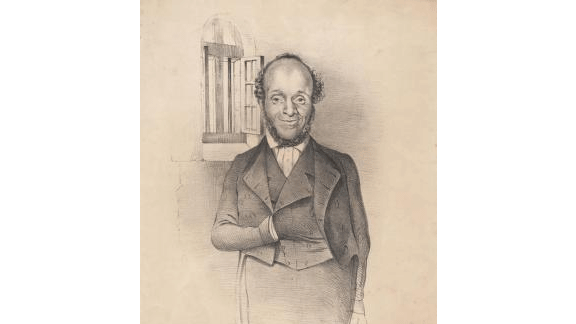William Cuffay, ‘the most cantankerous and disaffected of all the Chartist spouters’

The 19th century British working class stood at the forefront of the struggle for democratic rights. Its movement was known as Chartism – named after the People’s Charter, a document proposing the transformation of the British electoral system to allow working class participation.
One of the most significant and radical leaders was William Cuffay.
The son of a former African slave, Cuffay was born in 1788. His father, having gained freedom in England, established the family in Chatham, Kent, and helped his son gain an apprenticeship and become a journeyman tailor. He stuck at this trade for 30 years before he became politically active – proving that you are never too old to become a radical.
Cuffay joined the Chartist movement in 1834 after the defeat of a major tailors strike. He was elected as a national representative to a variety of Chartist bodies and became a popular orator.
Having battled the twin evils of exploitation and racism his whole life, Cuffay moved rapidly to the left. Chartism, like any movement, contained political divisions. The battle in this instance was between “moral force” and “physical force”.
Moral force Chartists were moderates who wanted to appeal to the powers that be with petitions and persuasive arguments. Physical force Chartists saw, rightly, that the ruling class was not going to be persuaded by honeyed words to allow equal working class participation in society.
Cuffay maintained that class interests in society were irreconcilable and therefore working class rights had to be fought for, with arms if necessary. In anticipation of what was to be one of Chartism’s largest mobilisations, on Kennington Common, Cuffay told his fellow delegates that “the men of London were up to the mark, and were eager for the fray”.
He scorned the moderate leaders as “cowardly humbugs”. In particular he railed against the futile policies of concession that led the movement into a dead end in 1848 – the failure of the Charter to be voted up in parliament.
In August that year he was arrested for conspiracy against the queen, tried and, unsurprisingly, convicted. Upon sentencing he said, “I ask no pity. I ask no mercy. I expected to be convicted, and I did not think anything else. I am not anxious for martyrdom, but after what I have endured this week, I feel that I could bear any punishment proudly, even to the scaffold.”
He was sentenced to transportation to Tasmania for “the term of his natural life”. Such punishment was intended to cow working class militants. But Cuffay refused to be silenced. On arrival in October 1849, he found fertile ground for agitation. Convicts, many of them political prisoners, were extremely active.
He worked as a tailor and set to work organising against the authorities. He spoke at meetings across Hobart and would often address his “fellow slaves” – a reference to the transportation system and the class resentment bred by the forced labour regime. Some convicts tattooed each other’s bodies with statements such as, “May the sun never set on the cottage of the slave, nor rise on the palace of the tyrant.”
Solidarity in struggle sliced through racist divisions. Cuffay organised shoulder to shoulder with convicts and workers of all backgrounds. He was instrumental in challenging the barbaric Masters and Servants Act, which allowed employers to imprison workers. Cuffay’s activism laid the basis for the early trade union movement in Australia.
Cuffay died in poverty in July 1870 in a poor house in Hobart. After his death the conservative Birmingham Post wrote: “Cuffay was the most cantankerous and disaffected of all the Chartist spouters, and his splenetic and Quilpish features and person gave additional point and ill nature to his attacks on the government and the upper classes.”
Anyone who can rouse this kind of ire among the powers that be deserves to be hailed a hero.